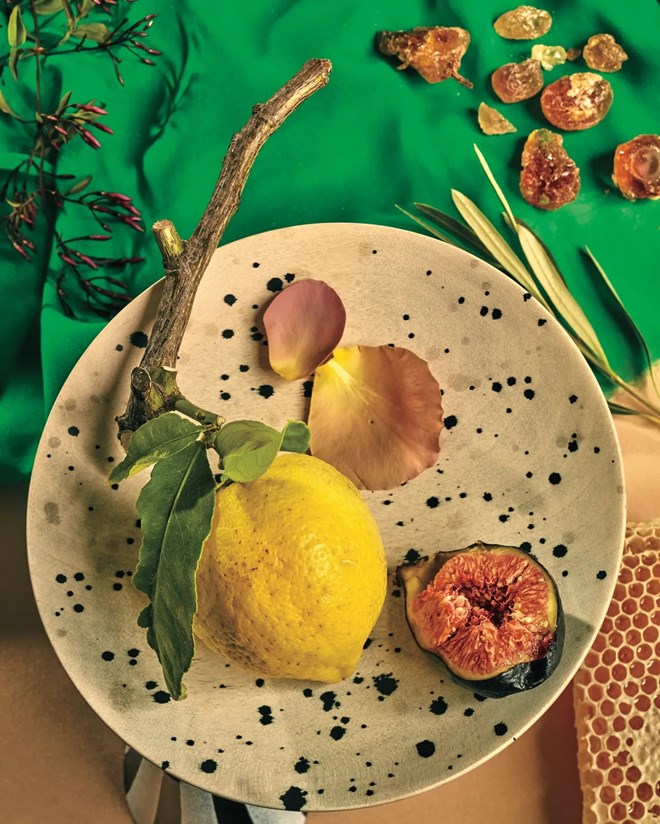
Tuesday November 29, 2022
BY IFRAH F. AHMED

I have a photographic memory—but only when it comes to food. Many of my relationships are mapped in meals. I remember exactly which loved one I was with, what we ate, and what we were going through. I’ve feasted with my friends to honor any and every occasion, whether sharing meals in celebration or grazing through the grief.
The cacio e pepe and insalata verde from Via Carota for a birthday celebration, tender lamb haneeth and neverending chai from Yemen Cafe one Ramadan evening, the vegan pasta cooked by three girlfriends every Sunday in a Chinatown apartment. Pieces of sour injera torn and fed to each other by two lovers at Awash. Plates of hilib ari and rice polished off by family members at home. Vibrant and indulgent bites of mango tres leches cake eaten with an old friend in the shade at Gjusta.
But in life, you never know when your last of anything will be. When my friend Halimo was tragically murdered in 2017, the first memory of her that surfaced—after the initial shock and tidal waves of grief—was the final meal that we shared at Saffron Grill, a popular Indian restaurant in North Seattle. In my mind, she remains permanently seated across from me in a warmly lit back booth, plates of spicy chicken vindaloo and fragrant goat biryani in front of us.
The last place you see a person belongs to them. A part of their spirit is always living there. Whenever I return to Saffron, I feel an immediate sense of déjà vu. My eyes instinctively scan to that back booth, expecting to find Halimo waiting there, with food and gossip to share. In these spaces we occupied together, time sits at a standstill. She is still alive, and we are together for a little while.
But Halimo is in other places, too. I see her seated next to her husband eating mustard-laced yassa jeun across from me at Joloff, a beloved Senegalese restaurant in Brooklyn. She’s in my garden in the Madison Beach neighborhood of Seattle, kneeling next to me in the dirt, her hands carefully pulling out the invasive mint that was taking over the tomatoes.
We are on a meal break in the faculty lounge of the public high school we both worked at in South Seattle, assembling individual snacks like pieces of a puzzle into one big lunch. Halimo is in my kitchen, in the last house I lived in before leaving for New York; telling me in her sing-song Kenyan-Somali accent about how her ugali is similar to my soor, as we chop a mountain of freshly harvested spinach and collard greens for dinner.
At Halimo’s memorial service, all I could think about was her beautiful spirit, who she was becoming, and who she will never get the chance to be: a Master’s graduate, a school counselor, a woman fiercely and unapologetically devoted to her own freedom. I remember her at my nikkah, serving shaah and dancing a bridal buranbuur, hijab flying in the air. What new experiences would she be chasing? What memories would we have made? Would she have gotten to meet my daughter?
Those responsible for Halimo’s death snuffed out a promising life with so much more burning left to do. The loss of her was a burst of cruelty. For a while, my thoughts only gravitated to the tragic way that she died. This felt like a betrayal to her memory. What did it mean that I could remember how Halimo died but the details of her life were fading by the day?
Where death takes, grief mutates. Molded to me like a second skin, my grief moved with me as I cooked through the anguish. I returned to the meals we shared as a way to carry myself through the grief. If I could remember how Halimo lived, then the heartbreak of how she died could not consume me.
In time, I learned to sit with the memories I did have—my grief reminding me that sharing food was a ritual. We had tenderly folded sambuusas and crushed cardamom pods for tea, but we’d also planned, gossiped, and confessed. Halimo and I ate and nurtured one another as we made sense of our existence, in the same ways that the women in our families did before us. Our shared meals were a practice in learning about ourselves, and unlearning the things that no longer aligned with who we wanted to become. We had been witness to one another in the way that women are when they have finally outgrown prioritizing everyone but themselves.
The more I sought out these meals as a source of comfort, the less it became about using them as a resting place for my grief. It transformed into a way to celebrate the life my friend had lived. Now, when I want to honor Halimo’s memory, I go back to what we ate together. I cook what we shared, I savor what she loved. In our shared meals, she will always live.